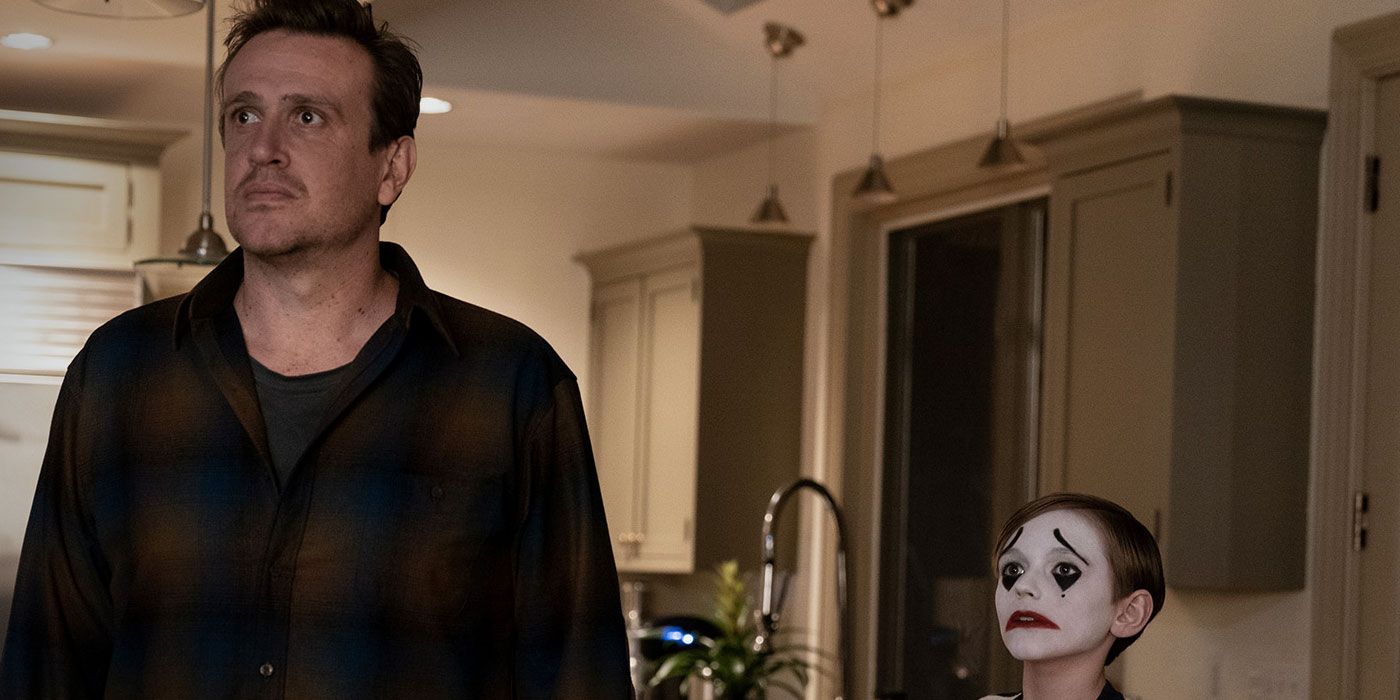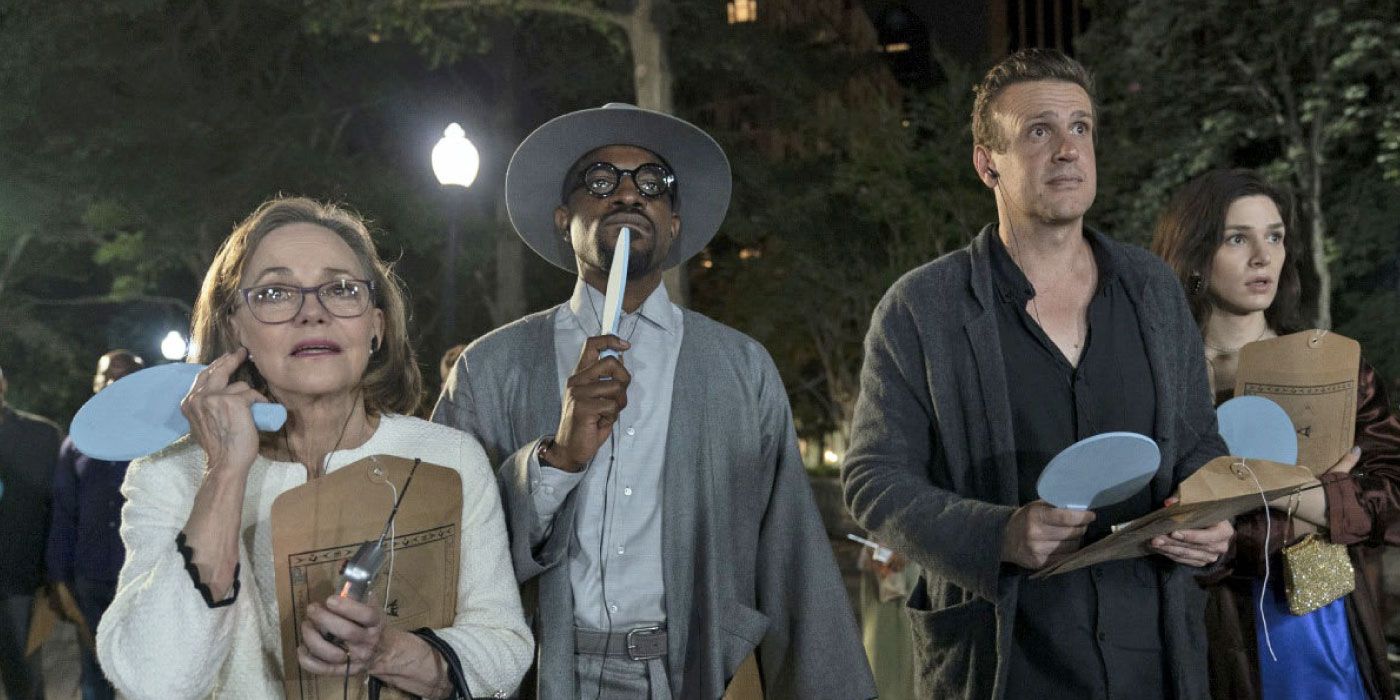WARNING: This article contains spoilers for AMC's Dispatches from Elsewhere.
This week brought the final episode of Dispatches From Elsewhere’s first season, including a surprising and deeply personal twist. The finale included moments of wisdom and poignancy but also neglected to give satisfactory endings for many characters and storylines. In the end, the conclusion validated the perception that Dispatches From Elsewhere has always been Jason Segel’s passion project.
There’s something about Dispatches From Elsewhere that makes it difficult to define. The show flirted with a variety of visual styles and storytelling methods in its first season. Initially, it appeared to be a quirky fantasy. At other moments, it fluctuated between painful reality and surreal comedy. For a good percentage of the series, though, the main mystery seemed to revolve around what the mysterious Jejune Institute was up to. The characters raced around solving puzzles and quarreling over their differing perceptions. As it turned out, the Jejune Institute and its mysteries weren’t nearly as key to the story as they seemed.
The finale starts strong, with a black and white peek into the life of the Boy Clown, a child passionate about acting. The Boy Clown has his dreams realized when he’s adopted into the entertainment industry, but success becomes bitter as he’s gradually drained and discarded by the system. It’s a story that’s no less affecting for its familiarity and, by the time the Boy Clown attempts his final exhausted flip, he has viewers entirely on his side.
Then Dispatches From Elsewhere switches over to modern times, where viewers get to see Peter, the main character, trudging through the weary ritual of an AA meeting. But something is up because Peter doesn’t exist anymore. He’s been replaced by his actor, Jason Segel, who is worn thin from the battle against his own demons. The finale goes through a slightly more grounded version of the previous episodes, as Jason starts making human connections and explores an interactive art project.
In a raw moment, Jason reveals that he is, indeed, the Boy Clown, suffering from a loss of wonder and hope after working too hard and too long to turn himself into a commodity. Growing increasingly meta, the dialogue includes references to previous projects Segel found joy in, including his Muppets work and the Dracula musical from Forgetting Sarah Marshall. Jason admits to losing his spark and posits that community and art can be paths forward when one is lost. This is all powerful stuff.
In a choice that feels inevitable and slightly cheesy, Jason writes the script for Dispatches From Elsewhere and produces it with the help of his friends. After all that, it turns out the main question the series wishes to explore is actually about whether commerce will always suck the life out of art and artists. This is a big question, but it also leave viewers wondering about the fictional counterparts to Jason’s real-world friends.
One of the biggest successes of the show was always going to be the romantic relationship between Peter and Simone, played by Eve Lindley. These characters shared many respectful, realistic and tender moments together, supporting each other's growth and gradually building a loving partnership. In the end, however, while Simone and Jason do support each other’s art, the romance between them is gone, existing only as a fictional element of Jason’s script.
Janice, played by Sally Field, is less complex in the finale, relegated to a semi-angelic presence. But Fredwynn, André 3000’s character, suffers the most. Fredwynn was always single-minded, intelligent, and self-destructive. While his connections to others did eventually help him grow, his arc feels unfinished. In the finale, Fredwynn’s real-world counterpart is calm and reasonable, leaving viewers without any clues to the fictional Fredwynn’s future.
It might be cold to find fault in an episode where the creator is so piercingly honest about their faults and journey. However, the danger of pulling the curtain back and revealing all the springs and gears inside is that it can put a layer of distance between the viewer and the original story. This can be great fun with comedies, such as Deadpool and Blazing Saddles, but gets trickier with drama. It replaces closure with curiosity. However, one cannot find too much fault with a show this gentle.
Dispatches From Elsewhere certainly invests the viewer in Segel’s creative journey. It will be interesting to see what he takes on next. As of yet, the future of the show is in limbo and AMC hasn’t made any announcements regarding renewal. Segel has stated that a second season would likely explore a new topic with new characters, instead of spending more time with the Jejune Institute project. All that fans have now is to wonder how the Dispatches From Elsewhere template would apply to another story and which aspects of the original season would remain, especially after the big twist ending.



